19 Oct2020
By Nadine Gilbert
This article, part two of a three-part series, originally appeared on the Education First Blog and is reprinted with permission.
Tackling curriculum in a teacher preparation program is complicated work. At Jackson State, we have three pathways and 18 teaching faculty members across multiple course offerings in the junior and senior course sequence run by the college of education. But we knew that if we wanted to truly transform the experience and eventual effectiveness of our teacher candidates, overhauling the clinical experience—which I described in my previous post—wasn’t enough. And we knew we needed to come together as a team of administrators and faculty to develop a strong vision for the why and how to do it successfully.
In 2016, we set two goals for ourselves: first, we needed to tightly align each course to the Mississippi Teacher Intern Assessment Instrument (TIAI), the instructional rubric we use to measure our candidates’ proficiency with teaching. (As I described in my previous post, US PREP was a key partner and critical friend in all of our transformation work, including the curriculum work.) This alignment work included revisiting the early field experiences embedded in coursework that precedes candidates’ formal clinical experience. Second, we revisited the sequence of courses to ensure within each pathway, faculty could build teacher candidate skills in a logical progression.
Fast forward to today: although daunting, we did it. With US PREP’s support and the momentum from our clinical experience work, we channeled the urgency we all felt to achieve our goals. With the exception of a few legacy candidates, our teacher candidates are right now taking revamped courses. And by this time next fall, we will have fully implemented the program-wide curriculum changes.
16 Oct2020
By Deirdre Armitage
This article is part of a series on clinically rich teacher preparation in New York State, coordinated by Prepared To Teach at Bank Street College. The text is adapted from their latest report, Making Teacher Preparation Policy Work: Lessons From and For New York, and shared by the featured institution.
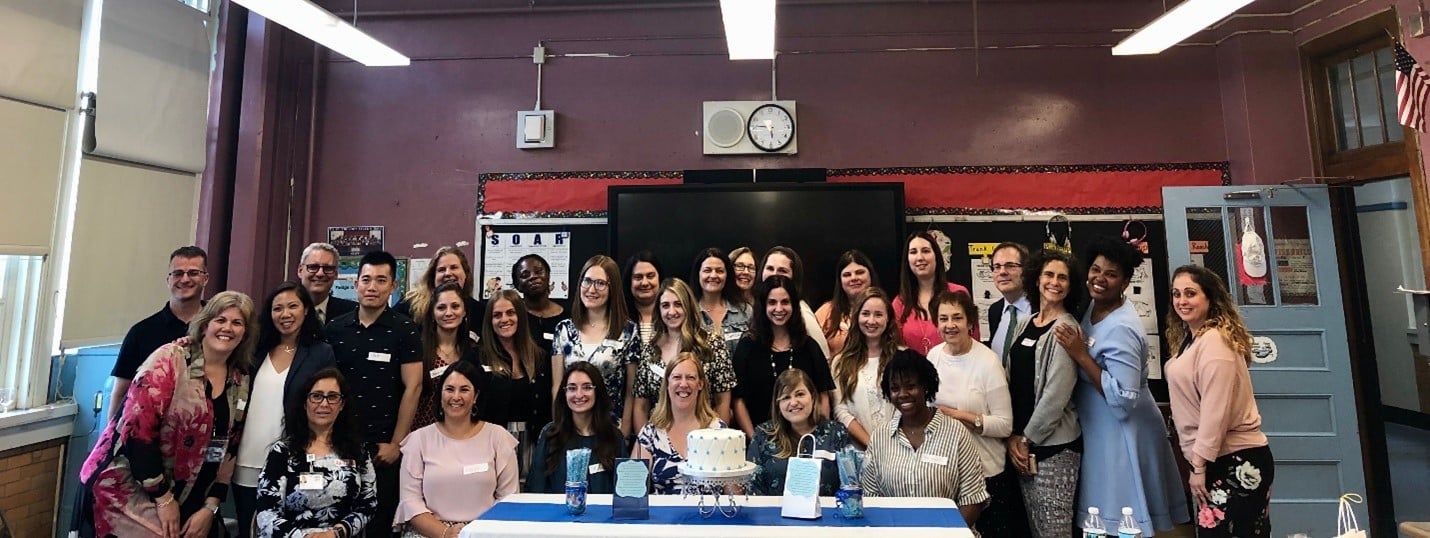
The College of Staten Island (CSI) enrolls many diverse first-generation college students. A number of these students support their families and themselves, working multiple jobs and limiting expenses while studying—making it impossible to pursue a traditional student teaching pathway that includes a semester of unpaid, full-time student teaching. Seeing that many students were effectively being excluded from teacher preparation, the College and its partner schools set out to create a teacher residency that paid students for their time spent in classrooms, providing an accessible path to a teaching career.
16 Oct2020
By Ward Cummings
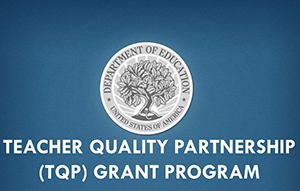 The Department of Education has awarded 23 grants administered as a of part of a pool of funding created to benefit programs including the Teaching Quality Partnership Program (TQP). Of the 10 grants awarded under Teacher Quality Partnerships program—totaling $7.3 million—six of the grantees are AACTE members.
The Department of Education has awarded 23 grants administered as a of part of a pool of funding created to benefit programs including the Teaching Quality Partnership Program (TQP). Of the 10 grants awarded under Teacher Quality Partnerships program—totaling $7.3 million—six of the grantees are AACTE members.
The 23 grants, totaling nearly $100 million, will promote educator development and training in alignment with a signature economic initiative of the Administration. The grants are designed to contribute to the enhancement of the professional development and effectiveness of teachers and principals. Each of the awards went to schools or nonprofits that connect in some way with economic Opportunity Zones to serve economically distressed or underserved communities around the country.
The Teacher Quality Partnership grant program, authorized in Title II of the Higher Education Act, is the only federal initiative designed to strengthen and reform educator preparation at institutions of higher education. Strongly supported by AACTE, TQP grants support the preparation of profession-ready teachers for high-need schools and high-need subject areas. Under this program, partnerships between institutions of higher education and high-need schools and districts compete for funding to develop master’s-level residency programs or to reform undergraduate preservice preparation programs.
15 Oct2020
By Jerrica Thurman

Registration is now open for AACTE’s virtual 2021 Annual Meeting, February 24-26. Themed “Resisting Hate, Restoring Hope: Engaging in Courageous Action,” the conference will feature hundreds of education presentations, keynote sessions, a virtual exhibit hall, and networking opportunities. Join the digital forum from work or home and engage in meaningful discussion, share research and best practices, and become better equipped to drive change in educator preparation.
AACTE’s discounted registration rates are designed especially for you, your colleagues and students to attend the virtual conference this year. Take advantage of these special rates:
|
|
Early Bird
(on or before
December 4, 2020)
|
Advance Registration
(on or before
January 22, 2021)
|
Late Registration
(after January 22, 2021)
|
|
Member Rate
|
$349
|
$389
|
$419
|
|
Non Member Rate
|
$489
|
$539
|
$589
|
|
Emerging Leader
|
$179
|
$179
|
$179
|
|
Student or Holmes Scholar
|
$69
|
$89
|
$109
|
Register now for the AACTE 2021 Annual Meeting! Secure your spot and save when you register by the December 4 early bird deadline. Visit www.aacte.org for conference details, follow us on Twitter and Facebook, and join the conversation using #AACTE21.
Come experience the reimagined AACTE Annual Meeting – One community. One purpose. One voice.

15 Oct2020
By Lynn M. Gangone
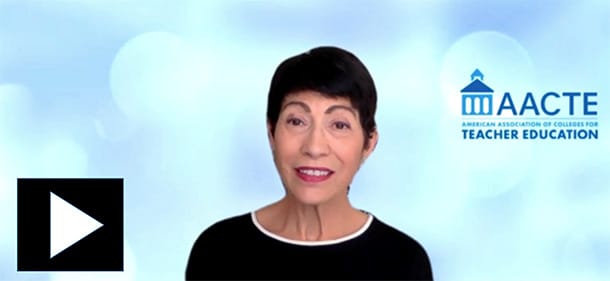
AACTE kicks off our inaugural, virtual Leadership Academy Series today, where participants will learn best practices for “Leading During Difficult Times.” Providing you timely and relevant professional development opportunities and resources to advance your institution, your programs, and your career is central to our mission at AACTE. Please take a few minutes to watch the video above and learn more about opportunities to engage with your Association.
AACTE released yesterday its latest issue brief on financial challenges facing future teachers. You may access the member-only resource at aacte.org. Your feedback on how AACTE can continue to support your work is valuable so be sure to complete the Fall Member Survey by November 6. And remember your voice truly matters; make your voice heard in the upcoming presidential election. Your voice, your vote!
15 Oct2020
By Azaria Cunningham
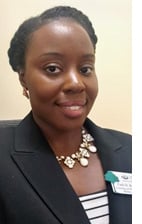 Carla Roberson is a doctoral candidate in the Counselor Education and Supervision program at Ohio University, where she is pursuing a concentration in mental health and rehabilitation counseling. Roberson is also a former McNair Scholar and alumnae of Kean University where she earned her bachelor’s degree in psychology. She previously served on the Holmes Council as the social media coordinator and continues to give back to the Holmes community.
Carla Roberson is a doctoral candidate in the Counselor Education and Supervision program at Ohio University, where she is pursuing a concentration in mental health and rehabilitation counseling. Roberson is also a former McNair Scholar and alumnae of Kean University where she earned her bachelor’s degree in psychology. She previously served on the Holmes Council as the social media coordinator and continues to give back to the Holmes community.
Roberson’s research investigates the lived experiences and psychological well-being of Black students and faculty in higher education. Her dissertation study, “A Phenomenological Study on the Experiences of Imposter Phenomenon among Black Doctoral Students at Predominantly White Institutions” focuses on the impostor phenomenon—a psychological pattern that makes it hard for people to internalize their own accomplishments—and its effects on doctoral students of color. She is committed to the recruitment and retention of underrepresented minority students and professionals in higher education. She hopes to become a professor, alongside her mental health pursuits, in order to inspire students by creating an environment for them to become effective clinicians, educators, and critical thinkers.
15 Oct2020
By Martha Spieker
The following article features comments by AACTE President and CEO Lynn M. Gangone on behalf of the Association in support of the legislation.

Senator Mazie K. Hirono (D-Hawaii), along with her colleague Senator Cory Booker (D-N.J.) announced their plan to introduce the Learning Opportunity and Achievement Act (LOAA), which would improve distance and blended learning in our public schools during the coronavirus pandemic. LOAA combats instructional loss, particularly for at-risk and marginalized students, by providing support for professional development and training programs for teachers, tutoring and academic services, research and best practices, and other initiatives to enhance equity and access for all students. Specifically, the bill provides funding to address instructional loss for at-risk and marginalized students, including low-income students, minority students, children with disabilities, English learners, migratory students, homeless children and youth, and children or youth in foster care.
“Over the past few months, I’ve heard from students, parents, and educators across Hawaii who are doing their best to adjust to distance learning during the coronavirus pandemic. My own education was fundamental to my success, and this generation of students deserves a quality education—regardless of the challenges the pandemic poses. LOAA provides vital resources so educators can support their students, particularly those who are most at risk for instructional loss. I will continue to advocate for robust funding that supports healthy and safe learning environments for students in Hawaii and across the country,” Senator Hirono said.
13 Oct2020
By AACTE
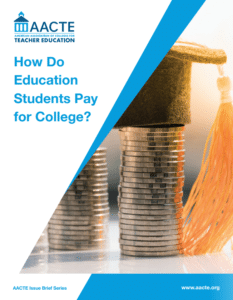 The American Association of Colleges for Teacher Education (AACTE) released today its latest issue brief, How Do Education Students Pay for College? The report provides colleges of education a closer look at the financial pressures impacting education students, by type of institution attended and by student race and ethnicity, through a detailed examination of the costs they face and the financial sources they use to pay those expenses. The findings reveal the financial challenges future educators will face and the financial disincentives to pursuing a teaching career, especially for students of color. It also supports the necessity of compensating educators fairly, in particular novice teachers who may be most burdened by student loan debt.
The American Association of Colleges for Teacher Education (AACTE) released today its latest issue brief, How Do Education Students Pay for College? The report provides colleges of education a closer look at the financial pressures impacting education students, by type of institution attended and by student race and ethnicity, through a detailed examination of the costs they face and the financial sources they use to pay those expenses. The findings reveal the financial challenges future educators will face and the financial disincentives to pursuing a teaching career, especially for students of color. It also supports the necessity of compensating educators fairly, in particular novice teachers who may be most burdened by student loan debt.
“The global pandemic has deepened the national teacher shortage crisis. It is critical now more than ever to recruit diverse, talented people into the teaching profession, which requires our nation’s leaders to revamp policies and practices that make college affordable and increase teacher compensation,” said Lynn M. Gangone, president and CEO of AACTE.
13 Oct2020
By Mary Murray
This article originally appeared in University Business and is reprinted with permission.

Photo by Nikolas Noonan on Unsplash
At the onset of the 2020-21 academic year, the educational system is in a coronavirus maze, wherein the turns are constantly changing, and the end seems out of sight. While state education departments, school districts and educator preparation programs (EPPs) are prepared—whether in class, online, or a hybrid of both—the pandemic reminds us how unpredictable the road ahead may be. Recently, some schools in the United States that reopened for in-class instruction have reversed their plans due to COVID-19 outbreaks.
13 Oct2020
By Nadine Gilbert
This article, part one of a three-part series, originally appeared on the Education First Blog and is reprinted with permission.
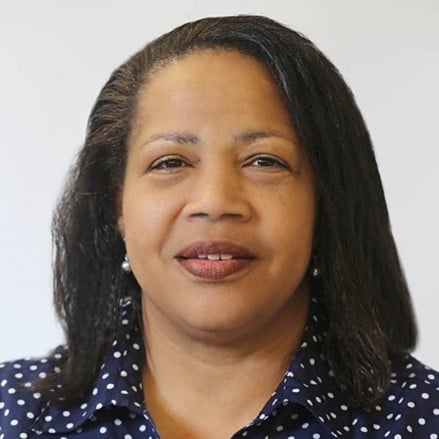 Back in 2015, a group of department chairs, administrative leadership, program directors and faculty at Jackson State University formed a task force to write a plan for transforming our teacher preparation program. In that plan, we identified areas of strength and areas we needed to improve. We wanted to build on the deep experience and wisdom of faculty, while taking a fresh look at how we could more strongly ground the experience of our teacher candidates in current K12 practices. At around that same time, we were fortunate to find incredible support by joining the US PREP coalition. With JSU leaders and faculty leading the way, the US PREP peer network and coaches acted as critical friends to strengthen and accelerate our work. We have achieved so much together.
Back in 2015, a group of department chairs, administrative leadership, program directors and faculty at Jackson State University formed a task force to write a plan for transforming our teacher preparation program. In that plan, we identified areas of strength and areas we needed to improve. We wanted to build on the deep experience and wisdom of faculty, while taking a fresh look at how we could more strongly ground the experience of our teacher candidates in current K12 practices. At around that same time, we were fortunate to find incredible support by joining the US PREP coalition. With JSU leaders and faculty leading the way, the US PREP peer network and coaches acted as critical friends to strengthen and accelerate our work. We have achieved so much together.
13 Oct2020
By John Blackwell
This article is a personal reflection of the 2020 Washington Week State Leaders Institute by attendee John Blackwell.
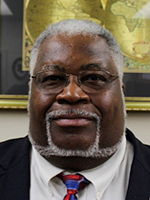 As academics who value valid evidence and scientifically proven knowledge, we know that, concerning human beings, there is only one race—the human race. We have lived our entire lives knowing that race is one of the most divisive topics you could ever introduce in any conversation or classroom. Robin DiAngelo, in her book, ‘White Fragility’: Why It’s So Hard for White People to Talk about Racism, explains so clearly the idea of race was created, “as an evolving social idea that was created to legitimize racial inequality and protect white advantage.” Despite this knowledge, the term racism has been weaponized to condemn anyone who uses it. When having discussion about racism, it is difficult for one to see beyond their emotion to get to the actual facts.
As academics who value valid evidence and scientifically proven knowledge, we know that, concerning human beings, there is only one race—the human race. We have lived our entire lives knowing that race is one of the most divisive topics you could ever introduce in any conversation or classroom. Robin DiAngelo, in her book, ‘White Fragility’: Why It’s So Hard for White People to Talk about Racism, explains so clearly the idea of race was created, “as an evolving social idea that was created to legitimize racial inequality and protect white advantage.” Despite this knowledge, the term racism has been weaponized to condemn anyone who uses it. When having discussion about racism, it is difficult for one to see beyond their emotion to get to the actual facts.
08 Oct2020
By Rebecca Koenig
The following is a quote from AACTE President and CEO Lynn M. Gangone from the article, which originally appeared in EdSurge and is reprinted with permission:

“With a 120-hour curriculum, it’s hard to find space to add more,” Gangone says. “There’s the basic ed-prep work, and then you’ve got all the other things that end up being initially seen as ancillary but aren’t—like social and emotional learning.”
On an ordinary June morning, kids descend on the campus of Auburn University to try science experiments at the college of education’s annual STEM camp. It’s an opportunity for the future teachers who are enrolled at the college to apply what they learn in class in a practical setting, testing out lesson plans with real elementary students.
This year, camp is canceled due to COVID-19. But education students still need to work on lesson plans, and kids still need summer activities. So the college is asking its future teachers to make online activity guides and videos for Home Works, a new distance learning program designed to help kids connect the curricula they usually learn in person at school or camp with what’s going on in their real lives—which right now mostly means being stuck at home.
“I want to make sure my undergrads are thinking about their impact outside of a formal classroom,” says Martina P. McGhee, assistant clinical professor of elementary education at Auburn University.
08 Oct2020
By Tariq Akmal
This article is a personal reflection of the 2020 Washington Week State Leaders Institute by attendee Tariq Akmal.
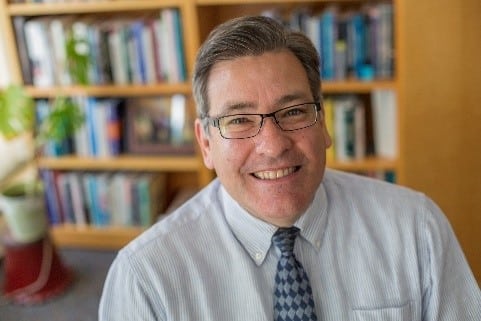 I was fortunate to attend the State Leaders Institute breakout session on State Government Advocacy with Three State Chapters. Attendees heard from Christine Carrino Gorowara of Delaware, Scott Hewitt of Florida, and Vanessa Anton and Robin Fuxa of Oklahoma. This session was a sharing of the different types of advocacy activities that were occurring in three states. The variation in state size/population was very evident in the scale of activities of each chapter. What did they hold in common? They are all active in advocacy work and are experiencing a teacher shortage in their states. Each panelist shared particular aspects of their association’s work with their state department of education, legislators, and other stakeholders within their states.
I was fortunate to attend the State Leaders Institute breakout session on State Government Advocacy with Three State Chapters. Attendees heard from Christine Carrino Gorowara of Delaware, Scott Hewitt of Florida, and Vanessa Anton and Robin Fuxa of Oklahoma. This session was a sharing of the different types of advocacy activities that were occurring in three states. The variation in state size/population was very evident in the scale of activities of each chapter. What did they hold in common? They are all active in advocacy work and are experiencing a teacher shortage in their states. Each panelist shared particular aspects of their association’s work with their state department of education, legislators, and other stakeholders within their states.
The Delaware Association of Colleges for Teacher Education (DACTE) had “flipped the script” on the traditional Day On the Hill approach and now brought specific Delaware legislators to their association for conversations regarding how DACTE could be a resource to legislators on educational issues and to build relationships so that DACTE would be invited to legislative initiatives on education. They invited members of the House and Senate Education Committee, in particular, which seems to be a highly effective strategy! Carrino Gorowara noted how they became collaborators in developing legislation that would be a help to Delaware teacher candidates in simplifying the background check process.
07 Oct2020
By Jacqueline E. King, Ph.D.
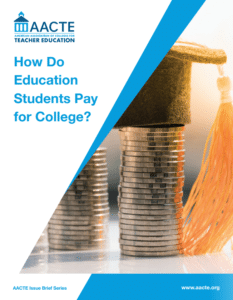 There is a growing body of research suggesting that concerns about compensation generally—and about being able to repay student loans in particular—are dissuading college students from choosing teaching as a career. These financial concerns have only been exacerbated by COVID-19 and its attendant financial crisis.
There is a growing body of research suggesting that concerns about compensation generally—and about being able to repay student loans in particular—are dissuading college students from choosing teaching as a career. These financial concerns have only been exacerbated by COVID-19 and its attendant financial crisis.
To help members better understand the financial pressures impacting education students, AACTE has released the new How Do Education Students Pay for College? issue brief that takes a detailed look at how students pursuing a bachelor’s degree in education pay for college, including the costs they face and the financial sources they tap to meet those expenses.
On Wednesday, October 21 from 3:00 – 4:00 p.m. ET, AACTE will host a webinar on this important topic. As the issue brief’s author, I will review the research findings, and I’ll be joined by AACTE consultant Jane West for a discussion of the implications of these findings for campus practice and federal policy. West will also share AACTE’s priorities for strengthening aid to future educators in federal appropriations bills as well as the reauthorization of the Higher Education Act.
The one-hour session will feature time for questions and discussion.
Register now.
07 Oct2020
By Jerrica Thurman
AACTE’s virtual
2020 Leadership Academy Series will be held in three sessions on October 14, October 27, and November 10. Themed “Leading During Difficult Times,” the sessions will feature best practices on diversity, equity, and inclusion in education; effective decision-making during crisis; and re-imagining field experiences and partnerships.
Here’s what attendees are looking forward to learning most during this year’s virtual Leadership Academy Series:

“I am most looking forward to learning from others innovative ideas and perspectives about educator preparation during these difficult times. I believe this experience has pushed everyone to think differently about educator preparation, and we are learning and figuring out new, productive strategies that have the potential to permanently change how we prepare future educators. – Jan Burcham, Columbus State University

“I’m interested in learning about how best to continue forward movement and growth while also taking into consideration the heaviness that many are feeling from all the uncertainties and fears associated with the pandemic. – Leah Nellis, Indiana University Kokomo

“I am excited to deepen my connection to AACTE through this series of workshops. The disparity in educational access has grown exponentially and conscientious leaders need to collaborate across institutions to develop creative and effective solutions that give our teacher candidates the tools they need to support all students equitably. I am confident this workshop will be an inspiration! – Amber L. Bechard, Ed.D., University of La Verne
The Academy Series has sold out! Stay tuned for information on how you can access the presentations. Visit
www.aacte.org for event details. Follow us on
Twitter and
Facebook, and join the conversation using #AACTELA20.



 The Department of Education has awarded 23 grants administered as a of part of a pool of funding created to benefit programs including the Teaching Quality Partnership Program (TQP). Of the 10 grants awarded under Teacher Quality Partnerships program—totaling $7.3 million—six of the grantees are AACTE members.
The Department of Education has awarded 23 grants administered as a of part of a pool of funding created to benefit programs including the Teaching Quality Partnership Program (TQP). Of the 10 grants awarded under Teacher Quality Partnerships program—totaling $7.3 million—six of the grantees are AACTE members.


 Carla Roberson is a doctoral candidate in the Counselor Education and Supervision program at Ohio University, where she is pursuing a concentration in mental health and rehabilitation counseling. Roberson is also a former McNair Scholar and alumnae of Kean University where she earned her bachelor’s degree in psychology. She previously served on the Holmes Council as the social media coordinator and continues to give back to the Holmes community.
Carla Roberson is a doctoral candidate in the Counselor Education and Supervision program at Ohio University, where she is pursuing a concentration in mental health and rehabilitation counseling. Roberson is also a former McNair Scholar and alumnae of Kean University where she earned her bachelor’s degree in psychology. She previously served on the Holmes Council as the social media coordinator and continues to give back to the Holmes community.
 The American Association of Colleges for Teacher Education (AACTE) released today its latest issue brief,
The American Association of Colleges for Teacher Education (AACTE) released today its latest issue brief, 
 Back in 2015, a group of department chairs, administrative leadership, program directors and faculty at Jackson State University formed a task force to write a plan for transforming our teacher preparation program. In that plan, we identified areas of strength and areas we needed to improve. We wanted to build on the deep experience and wisdom of faculty, while taking a fresh look at how we could more strongly ground the experience of our teacher candidates in current K12 practices. At around that same time, we were fortunate to find incredible support by joining the
Back in 2015, a group of department chairs, administrative leadership, program directors and faculty at Jackson State University formed a task force to write a plan for transforming our teacher preparation program. In that plan, we identified areas of strength and areas we needed to improve. We wanted to build on the deep experience and wisdom of faculty, while taking a fresh look at how we could more strongly ground the experience of our teacher candidates in current K12 practices. At around that same time, we were fortunate to find incredible support by joining the  As academics who value valid evidence and scientifically proven knowledge, we know that, concerning human beings, there is only one race—the human race. We have lived our entire lives knowing that race is one of the most divisive topics you could ever introduce in any conversation or classroom. Robin DiAngelo, in her book, ‘White Fragility’: Why It’s So Hard for White People to Talk about Racism, explains so clearly the idea of race was created, “as an evolving social idea that was created to legitimize racial inequality and protect white advantage.” Despite this knowledge, the term racism has been weaponized to condemn anyone who uses it. When having discussion about racism, it is difficult for one to see beyond their emotion to get to the actual facts.
As academics who value valid evidence and scientifically proven knowledge, we know that, concerning human beings, there is only one race—the human race. We have lived our entire lives knowing that race is one of the most divisive topics you could ever introduce in any conversation or classroom. Robin DiAngelo, in her book, ‘White Fragility’: Why It’s So Hard for White People to Talk about Racism, explains so clearly the idea of race was created, “as an evolving social idea that was created to legitimize racial inequality and protect white advantage.” Despite this knowledge, the term racism has been weaponized to condemn anyone who uses it. When having discussion about racism, it is difficult for one to see beyond their emotion to get to the actual facts.
 I was fortunate to attend the State Leaders Institute breakout session on State Government Advocacy with Three State Chapters. Attendees heard from Christine Carrino Gorowara of Delaware, Scott Hewitt of Florida, and Vanessa Anton and Robin Fuxa of Oklahoma. This session was a sharing of the different types of advocacy activities that were occurring in three states. The variation in state size/population was very evident in the scale of activities of each chapter. What did they hold in common? They are all active in advocacy work and are experiencing a teacher shortage in their states. Each panelist shared particular aspects of their association’s work with their state department of education, legislators, and other stakeholders within their states.
I was fortunate to attend the State Leaders Institute breakout session on State Government Advocacy with Three State Chapters. Attendees heard from Christine Carrino Gorowara of Delaware, Scott Hewitt of Florida, and Vanessa Anton and Robin Fuxa of Oklahoma. This session was a sharing of the different types of advocacy activities that were occurring in three states. The variation in state size/population was very evident in the scale of activities of each chapter. What did they hold in common? They are all active in advocacy work and are experiencing a teacher shortage in their states. Each panelist shared particular aspects of their association’s work with their state department of education, legislators, and other stakeholders within their states.  There is a growing body of research suggesting that concerns about compensation generally—and about being able to repay student loans in particular—are dissuading college students from choosing teaching as a career. These financial concerns have only been exacerbated by COVID-19 and its attendant financial crisis.
There is a growing body of research suggesting that concerns about compensation generally—and about being able to repay student loans in particular—are dissuading college students from choosing teaching as a career. These financial concerns have only been exacerbated by COVID-19 and its attendant financial crisis.
 “I am most looking forward to learning from others innovative ideas and perspectives about educator preparation during these difficult times. I believe this experience has pushed everyone to think differently about educator preparation, and we are learning and figuring out new, productive strategies that have the potential to permanently change how we prepare future educators. – Jan Burcham, Columbus State University
“I am most looking forward to learning from others innovative ideas and perspectives about educator preparation during these difficult times. I believe this experience has pushed everyone to think differently about educator preparation, and we are learning and figuring out new, productive strategies that have the potential to permanently change how we prepare future educators. – Jan Burcham, Columbus State University  “I’m interested in learning about how best to continue forward movement and growth while also taking into consideration the heaviness that many are feeling from all the uncertainties and fears associated with the pandemic. – Leah Nellis, Indiana University Kokomo
“I’m interested in learning about how best to continue forward movement and growth while also taking into consideration the heaviness that many are feeling from all the uncertainties and fears associated with the pandemic. – Leah Nellis, Indiana University Kokomo  “I am excited to deepen my connection to AACTE through this series of workshops. The disparity in educational access has grown exponentially and conscientious leaders need to collaborate across institutions to develop creative and effective solutions that give our teacher candidates the tools they need to support all students equitably. I am confident this workshop will be an inspiration! – Amber L. Bechard, Ed.D., University of La Verne
“I am excited to deepen my connection to AACTE through this series of workshops. The disparity in educational access has grown exponentially and conscientious leaders need to collaborate across institutions to develop creative and effective solutions that give our teacher candidates the tools they need to support all students equitably. I am confident this workshop will be an inspiration! – Amber L. Bechard, Ed.D., University of La Verne